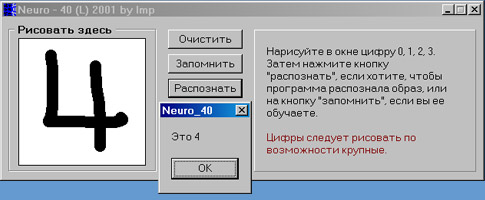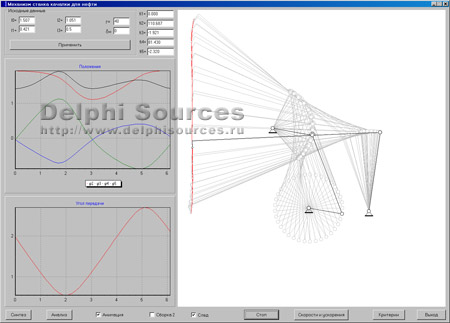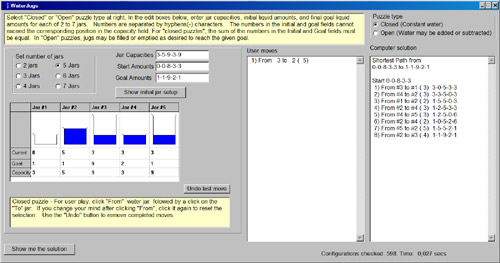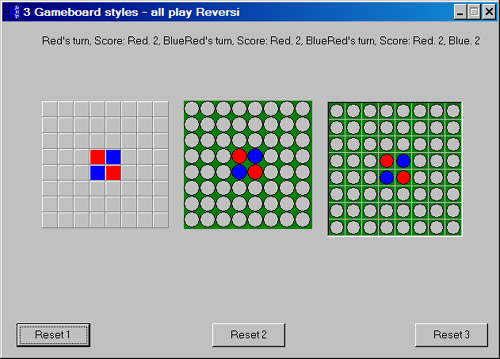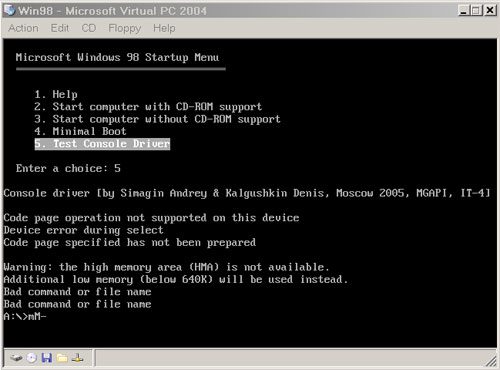Delphi FAQ - Часто задаваемые вопросы
| Базы данных |
Графика и Игры |
Интернет и Сети |
Компоненты и Классы |
Мультимедиа |
|
ОС и Железо |
Программа и Интерфейс |
Рабочий стол |
Синтаксис |
Технологии |
Файловая система |
Установка ловушки для клавиатуры
Оформил: DeeCo
// 1. Library Code for a Key Hook DLL
library HookLib;
uses
madExcept,
Windows,
Messages,
SysUtils;
type
PHookRec = ^THookRec;
THookRec = record
AppHnd: Integer;
MemoHnd: Integer;
end;
var
Hooked: Boolean;
hKeyHook, hMemo, hMemFile, hApp: HWND;
PHookRec1: PHookRec;
function KeyHookFunc(Code, VirtualKey, KeyStroke: Integer): LRESULT; stdcall;
var
KeyState1: TKeyBoardState;
AryChar: array[0..1] of Char;
Count: Integer;
begin
Result := 0;
if Code = HC_NOREMOVE then Exit;
Result := CallNextHookEx(hKeyHook, Code, VirtualKey, KeyStroke);
{I moved the CallNextHookEx up here but if you want to block
or change any keys then move it back down}
if Code < 0 then
Exit;
if Code = HC_ACTION then
begin
if ((KeyStroke and (1 shl 30)) <> 0) then
if not IsWindow(hMemo) then
begin
{I moved the OpenFileMapping up here so it would not be opened
unless the app the DLL is attatched to gets some Key messages}
hMemFile := OpenFileMapping(FILE_MAP_WRITE, False, 'Global7v9k');
PHookRec1 := MapViewOfFile(hMemFile, FILE_MAP_WRITE, 0, 0, 0);
if PHookRec1 <> nil then
begin
hMemo := PHookRec1.MemoHnd;
hApp := PHookRec1.AppHnd;
end;
end;
if ((KeyStroke and (1 shl 30)) <> 0) then
begin
GetKeyboardState(KeyState1);
Count := ToAscii(VirtualKey, KeyStroke, KeyState1, AryChar, 0);
if Count = 1 then
begin
SendMessage(hMemo, WM_CHAR, Ord(AryChar[0]), 0);
{I included 2 ways to get the Charaters, a Memo Hnadle and
a WM_USER+1678 message to the program}
PostMessage(hApp, WM_USER + 1678, Ord(AryChar[0]), 0);
end;
end;
end;
end;
function StartHook(MemoHandle, AppHandle: HWND): Byte; export;
begin
Result := 0;
if Hooked then
begin
Result := 1;
Exit;
end;
if not IsWindow(MemoHandle) then
begin
Result := 4;
Exit;
end;
hKeyHook := SetWindowsHookEx(WH_KEYBOARD, KeyHookFunc, hInstance, 0);
if hKeyHook > 0 then
begin
{you need to use a mapped file because this DLL attatches to every app
that gets windows messages when it's hooked, and you can't get info except
through a Globally avaiable Mapped file}
hMemFile := CreateFileMapping($FFFFFFFF, // $FFFFFFFF gets a page memory file
nil, // no security attributes
PAGE_READWRITE, // read/write access
0, // size: high 32-bits
SizeOf(THookRec), // size: low 32-bits
//SizeOf(Integer),
'Global7v9k'); // name of map object
PHookRec1 := MapViewOfFile(hMemFile, FILE_MAP_WRITE, 0, 0, 0);
hMemo := MemoHandle;
PHookRec1.MemoHnd := MemoHandle;
hApp := AppHandle;
PHookRec1.AppHnd := AppHandle;
{set the Memo and App handles to the mapped file}
Hooked := True;
end
else
Result := 2;
end;
function StopHook: Boolean; export;
begin
if PHookRec1 <> nil then
begin
UnmapViewOfFile(PHookRec1);
CloseHandle(hMemFile);
PHookRec1 := nil;
end;
if Hooked then
Result := UnhookWindowsHookEx(hKeyHook)
else
Result := True;
Hooked := False;
end;
procedure EntryProc(dwReason: DWORD);
begin
if (dwReason = Dll_Process_Detach) then
begin
if PHookRec1 <> nil then
begin
UnmapViewOfFile(PHookRec1);
CloseHandle(hMemFile);
end;
UnhookWindowsHookEx(hKeyHook);
end;
end;
exports
StartHook,
StopHook;
begin
PHookRec1 := nil;
Hooked := False;
hKeyHook := 0;
hMemo := 0;
DLLProc := @EntryProc;
EntryProc(Dll_Process_Attach);
end.
++++++++++++++++++++++++++++++++++++++++++++++++++++++++
2. Code from the calling Program
{this program get's the Char from the DLL in 2 ways,
as a Char message to a Memo and as a DLLMessage WM_USER+1678}
---
unit Unit1;
interface
uses
Windows, Messages, SysUtils, Classes, Graphics, Controls, Forms,
Dialogs, StdCtrls;
type
TForm1 = class(TForm)
but_StartHook: TButton;
but_StopHook: TButton;
label1: TLabel;
Memo1: TMemo;
procedure but_StartHookClick(Sender: TObject);
procedure but_StopHookClick(Sender: TObject);
private
{ Private declarations }
hLib2: THandle;
DllStr1: string;
procedure DllMessage(var Msg: TMessage); message WM_USER + 1678;
public
{ Public declarations }
end;
var
Form1: TForm1;
implementation
{$R *.dfm}
procedure TForm1.DllMessage(var Msg: TMessage);
begin
if (Msg.wParam = 8) or (Msg.wParam = 13) then Exit;
{the 8 is the Backspace and the 13 if the Enter key, You'll need to
do some special handleing for a string}
DllStr1 := DllStr1 + Chr(Msg.wParam);
label1.Caption := DllStr1;
end;
procedure TForm1.but_StartHookClick(Sender: TObject);
type
TStartHook = function(MemoHandle, AppHandle: HWND): Byte;
var
StartHook1: TStartHook;
SHresult: Byte;
begin
hLib2 := LoadLibrary('HookLib.dll');
@StartHook1 := GetProcAddress(hLib2, 'StartHook');
if @StartHook1 = nil then Exit;
SHresult := StartHook1(Memo1.Handle, Handle);
if SHresult = 0 then ShowMessage('the Key Hook was Started, good');
if SHresult = 1 then ShowMessage('the Key Hook was already Started');
if SHresult = 2 then ShowMessage('the Key Hook can NOT be Started, bad');
if SHresult = 4 then ShowMessage('MemoHandle is incorrect');
end;
procedure TForm1.but_StopHookClick(Sender: TObject);
type
TStopHook = function: Boolean;
var
StopHook1: TStopHook;
hLib21: THandle;
begin
@StopHook1 := GetProcAddress(hLib2, 'StopHook');
if @StopHook1 = nil then
begin
ShowMessage('Stop Hook DLL Mem Addy not found');
Exit;
end;
if StopHook1 then
ShowMessage('Hook was stoped');
FreeLibrary(hLib2);
{for some reason in Win XP you need to call FreeLibrary twice
maybe because you get 2 functions from the DLL? ?}
FreeLibrary(hLib2);
end;
end.
|
Похожие по теме исходники |
Copyright © 2004-2024 "Delphi Sources" by BrokenByte Software. Delphi World FAQ

